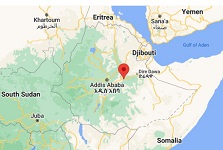The International Trade Centre (ITC) today released a multimedia report on transforming economies with connected services, with a spotlight on landlocked countries such as, Ethiopia.
The report spotlights four types of services, known as connected services, that drive economic transformation. The four services – transport and logistics, financial services, information and communications technologies, and business and professional services – contribute to greater output, trade and jobs. They also help make all firms more competitive, through the creation of a more business-friendly environment.
Connected services assist firms to join the global economy through trade, ITC research shows. In regions with high-quality connected services, 44% of all companies export, compared with 19% of firms where such services are weaker.
In landlocked countries, investing in these services in critical. Their performance on logistics, for example, is 17% lower than the global average. They are part of global supply chains, supplying important commodities to global markets as a major part of their exports. To better respond to supply chain shocks, investing in connected services is key. Landlocked countries also need these services to diversify their economies away from commodities towards value-added, sustainable goods and services.
This is also part of a global trend towards shorter supply chains, with countries strengthening their connections within regions to protect themselves from global supply chain shocks.
The transport and logistics sector is one of the most important for landlocked countries in this regard, with the potential to speed up intraregional trade. Trade in landlocked countries passes through priority trade corridors and numerous border checkpoints. Border reforms and digital transformation in the sector are equally important.
‘Connected services make our societies more equal. This services-led approach to development can help countries leapfrog and transform their economies,’ said Pamela Coke-Hamilton, ITC Executive Director. ‘For landlocked countries, transport and logistics are the glue that link various parts of a supply chain.’
The multimedia edition of the most recent SME Competitiveness Outlook features videos, photos and statistics. It also features a new section with data on the role of transport and logistics in landlocked countries as well as recommendations for trade facilitation.

